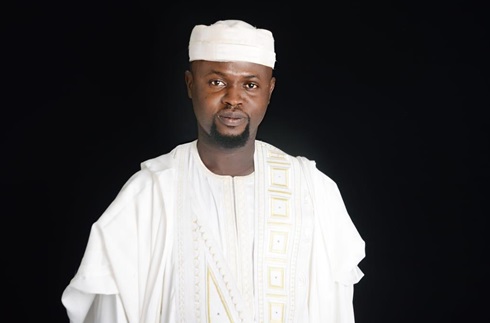It is with pride and humility that I report to you and our dedicated readers on the remarkable journey of a Zango man striving to change the course of history and reshape the narrative of a community in Ghana often associated with negative stereotypes, the Zango communities.
It may not attract much attention if a gentleman from any other community in Ghana were afforded the opportunity to present academic papers at the most prestigious university in the world — the University of Oxford in the United Kingdom. But for someone from a Zango background, such a feat stands out as extraordinary.
By the grace of Almighty Allah, and in pursuit of academic excellence, the Zango man has once again presented his third research paper on human rights at the Oxford Symposium on Religious Studies, held at the University of Oxford, UK, on 21 July 2025.
The paper, titled “Safeguarding Human Rights in Ghana: An Analysis of the Ghanaian Constitution,” underscores the following key points:
Human rights are the foundation of a just and equitable society.
Ghana, known for its commitment to democratic governance, has enshrined human rights in its 1992 Constitution, which guarantees fundamental rights including the right to life, liberty, freedom of speech and expression, assembly, and religion.
These constitutional provisions serve as a beacon of hope for citizens aspiring to live in a fair and equitable society.
Ghana has ratified several international human rights treaties, signalling its willingness to be held accountable on the global stage.
However, certain cultural norms and traditional practices in Ghana may conflict with human rights principles — especially concerning gender equality, LGBTQ+ rights, and other harmful practices.
Addressing these challenges requires sensitisation and education to promote respect for human rights while preserving cultural diversity.
The international community must recognise the cultural and religious diversity of the Ghanaian people.
Promoting development without respecting local identity risks failure unless the rights and heritage of indigenous populations are preserved.
The paper commended the Ghana Bar Association for its ongoing efforts to provide legal aid to prisoners and marginalised groups, stressing the need to sustain these interventions.
It also noted that vulnerable groups — including the poor, women, and rural communities — continue to face barriers in accessing justice and legal representation.
On the contentious issue of LGBTQ+ rights in Ghana, the paper argued that:
The debate on LGBTQ+ legality and acceptability in secular or religiously diverse societies continues globally — particularly in culturally conservative regions like Africa and Asia.
A recent High Court ruling in Ghana upheld a lower court decision recognising only “natural sex” under the Constitution.
In such environments, LGBTQ+ practices struggle to gain legal or social acceptance, even though such practices exist, particularly among political elites and the socially influential.
Advocacy for LGBTQ+ rights in Ghana remains risky and widely frowned upon, especially within religious and cultural communities.
The paper stated unequivocally that the Ghanaian community is "simply not ready" for LGBTQ+ practices and views such advocacy — whether from religious, cultural, or civil society institutions — as promoting "ungodly" values.
Constructive dialogue, education, and awareness campaigns are essential to fostering tolerance and understanding, but such efforts should not be driven by coercion or the threat of sanctions.
The paper also addressed the growing stereotype that women are becoming more powerful than men, particularly within religious and chieftaincy domains. It highlighted that this perception needs to be tackled diplomatically to avoid social tension.
Corruption was identified as a major impediment to the protection and enforcement of human rights, as it undermines trust in governance, restricts access to basic services, and exacerbates inequality.
Gender-based violence remains a persistent problem. While Ghana has taken steps to combat abuse, the paper noted that more needs to be done to ensure everyone — particularly women and girls — can live free from fear and discrimination.
Recommendations in the paper included:
- Strengthening judicial independence
- Enhancing accountability among law enforcement
- Raising public awareness through education
- Increasing civil society engagement
- Promoting respectful dialogue with religious and traditional leaders to clarify that women's empowerment does not imply making them more powerful than men
The paper was presented by Alhaji Khuzaima Mohammed Osman, Eminent Member and Chairman of the Finance and Fundraising Committee of the Greater Accra Regional Peace Council (GARPC) of the National Peace Council of Ghana (NPC). He is also a consultant in ADR, human rights, and Islamic affairs.

